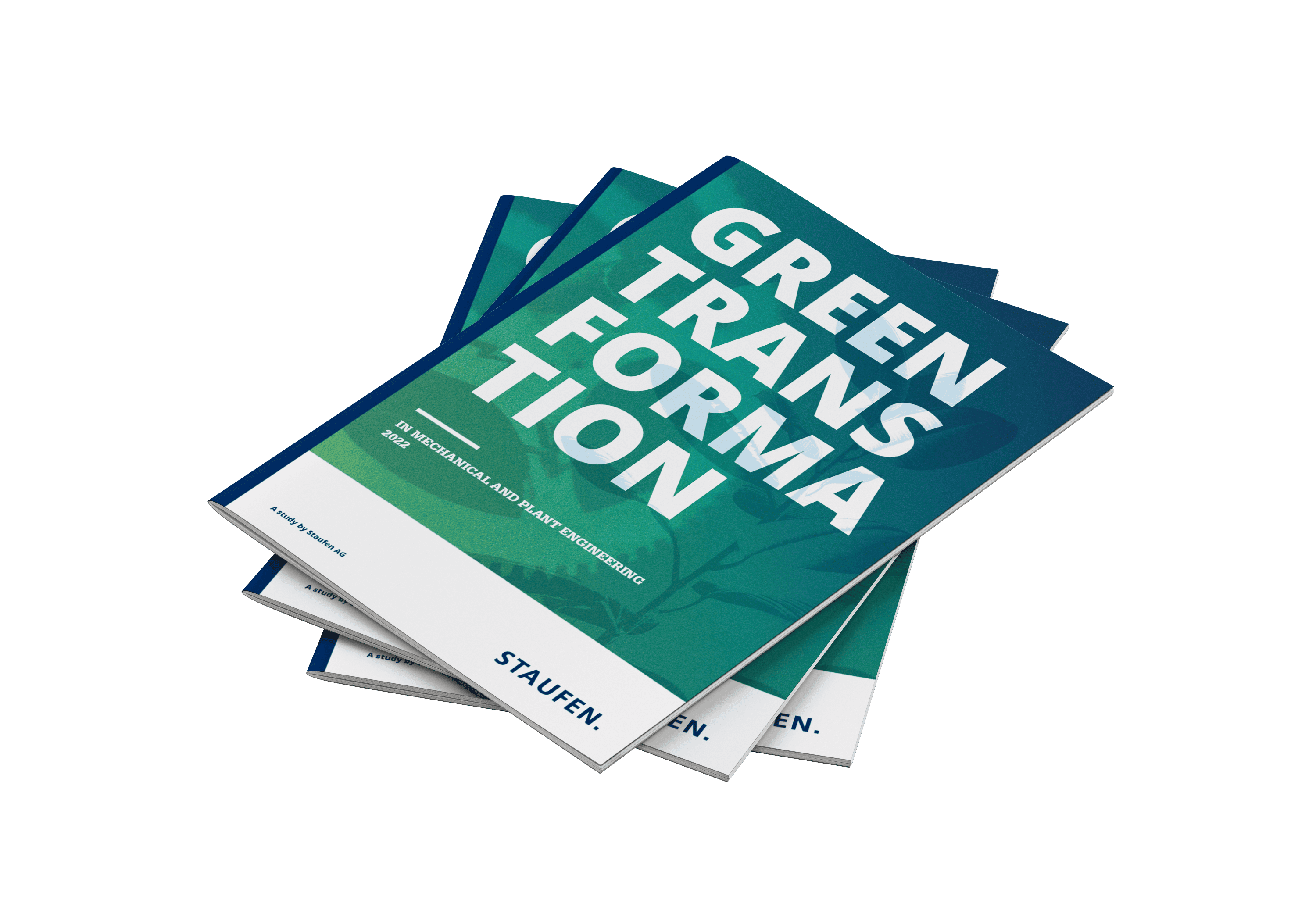
According to the current study “Green Transformation in Mechanical and Plant Engineering,” sustainability criteria have so far only played a minor role in supplier selection in the industry. Although the supply chain offers numerous starting points for green transformation in mechanical engineering, these are yet to be optimally utilized. In order to achieve the self-imposed climate targets, closer integration between manufacturers and suppliers is necessary. For the study, business consultancy Staufen surveyed more than 150 companies from the German mechanical and plant engineering sector.
“Close interaction between manufacturers and suppliers is an important building block in achieving the sustainability goals that have been issued. Jointly implemented strategies can combine positive ecological effects with efficiency gains,” says Dr. Björn Falk, Industry Manager for Mechanical Engineering at Staufen AG. This potential is currently not being exploited to the necessary depth, although social and political pressure for green transformation is steadily increasing.
According to industry expert Falk, the results of the current Staufen study indicate a lack of coordination between participants in the value chain: “The ESG concept is still too focused inward. Only 25 percent of mechanical and plant engineering companies consider the issue holistically and also include a sustainability assessment as a criterion in the supplier selection process. The automotive sector is already a step ahead: here, 61 percent already pay attention to a positive sustainability rating in the supply chain.”

One in two mechanical and plant engineering companies wants to be climate-neutral by 2030

For the green transformation to succeed, closer networking between stakeholders in the industry is necessary. Eight out of ten participants in the study agree that the exchange of ecological data is of great importance in a sustainable supply chain. Staufen consultant Falk therefore advises close coordination between supplier companies and buyers: “German industry is under a lot of pressure for a green transformation and has set itself high targets. One in two mechanical and plant engineering companies wants to be climate-neutral by 2030. This can only succeed if the supply chain is firmly integrated into the sustainability strategy and internal willingness to transform increases.”
In cooperation with the supplier companies, there are numerous opportunities for transformation according to ecological specifications. According to the companies, they are currently focusing on the following approaches: joint packaging strategies, ecological optimization of transport routes and joint research projects. “These initiatives and other projects need to be pushed forward to improve efficiency between the individual players,” says Staufen Manager Falk.
Cooperation could also reduce cost pressure in production. This is necessary, he says, because neither the mechanical engineering nor the automotive sector is generally prepared to bear additional ecological costs: “55 percent will not accept the additional costs of ecologically sustainable procurement. However, this argument must not lead to a ‘business as usual’ approach. Instead, innovative and efficient forms of collaboration should be introduced now,” says mechanical engineering expert Falk.

About the “Green Transformation in Mechanical and Plant Engineering” study
For the study, business consultancy Staufen AG surveyed a total of 160 companies from the mechanical and plant engineering sector in Germany on the subject of green transformation. The survey was conducted in February 2022. The study can be downloaded for free under the following link:
For more information:
STAUFEN.AG
Consulting.Academy.Investment.
Stephanie König
Blumenstr. 5
D-73257 Köngen
Mobil: +49 1522 2887 350
s.koenig@staufen.ag
Press:
Thöring & Stuhr
Kommunikationsberatung GmbH
Arne Stuhr
Mittelweg 142
D-20148 Hamburg
Mobil: +49 177 3055 194
arne.stuhr@corpnewsmedia.de
